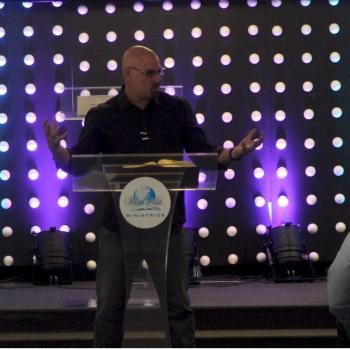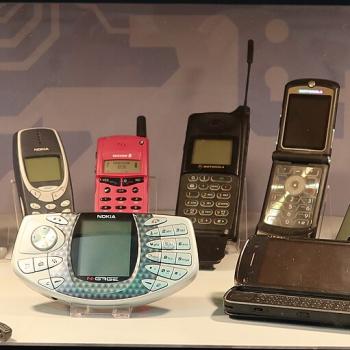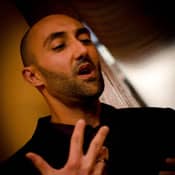It is quite easy to get overwhelmed by your personal predicaments and problems, whether on an individual or communal basis. As a Muslim community, there are almost daily reports of attacks on mosques, a proliferation of anti-Islam seminars and speakers, and most recently, the horrible news about the beating death of an Iraqi-Muslim woman in her own home. It is quite easy to think that no other minority group has got it this bad.
Then I heard about the brutal killing of Trayvon Martin by a neighborhood watch captain. Even though Shaima Al Awadi's death occurred after Martin's, in the aftermath of the Martin murder, I came to realize the extent to which young black males across our country are being advised on how to conduct themselves to avoid being killed.
It truly took me aback.
The easy response would be to say, "But for the grace of God, there go I," and move on and not think about it. Yes, indeed, that would be easy to do. But, it wouldn't be the right thing to do. The correct response to these murders is to say: "I am Trayvon Martin;" "I am Shaima Al Awadi." The correct response would be to say: "Trayvon Martin is my son," and "Shaima Al Awadi is my sister."
Indeed, the response to Trayvon's killing has been nationwide outrage, condemnation, and protest. Sadly, the response to Mrs. Alawadi's equally tragic murder has been deafening silence. These are not just personal tragedies of individual families and communities in opposite ends of our country. Both murders should be in the forefront of our nation's collective mind, for both may very well be the result of hatred and division.
Yes, the racism and hatred against African-Americans has predated that of American Muslims by centuries. In fact, many of those African Americans to whom such hatred and racism were directed were themselves Muslim. Yes, those American Muslims who are immigrants or children of immigrants, like me, are very much indebted to scores of African-Americans who stood up and shed their blood on the streets of this country to fight for their civil rights.
That is why I say, "I am Trayvon Martin." And, given that my late daughter would have turned 16 this year, I say, "Trayvon Martin is my son," as well.
But, America needs to also see that Shaima Al Awadi is her sister; Shaima Al Awadi is her daughter; Shaima Al Awadi is her mother. If hatred is ultimately the cause of her death, it is no less tragic, no less outrageous, and no less horrific. There is too much at stake for us to continue to allow such hatred to gnaw at our fabric as a nation and a people. There is too much at stake for us to let this sort of hatred to continue unabated.
Already, people across the nation are wearing "hoodies," the same type of hooded sweatshirt that young Trayvon wore the night he was killed. I wish that people would also wear a headscarf as well: It is also a head covering, and it also may have contributed to the death of Shaima Al Awadi.
In both cases, the investigations are ongoing. In both cases, evidence is there that indicates an underlying racial, ethnic, or even religious hatred that motivated the crimes. And if it is confirmed that hatred was the motive in both cases, then the entire nation should be offended. Just as we should all be saying, "I am Trayvon Martin and Shaima Al Awadi," we must start to say and begin to work for: "No more Trayvon Martins and no more Shaima Al Awadis." The future of our harmony as a people is at stake.
12/2/2022 9:09:41 PM





